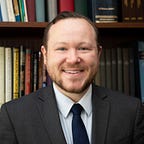The Emergence of Faith
The annual Conference of the Parties (COP) to the United Nations Framework Convention on Climate Change (UNFCCC) serves as the main venue for countries to assess the progress thus far made on tackling climate change and to negotiate on steps moving forward, steps as such as the recently ratified Paris Agreement.
An interesting element of the UNFCCC COP process has been the growing emergence and involvement of faith groups as stakeholders in, and observers to, these climate negotiations. Indeed, in the run up to COP22, the Moroccan Economic, Social and Environmental Council in partnership with the Rabita Mohammadia of religious scholars hosted the second Summit of Climate Conscience (following the first which was held in Paris in the run up to COP21). This coming together of religious, political and civil society actors to consult about the threats and obligations necessitated by the growing spectre of climate change resulted in the “Call of Fez”, a far reaching document which called both religious and political actors to higher levels of thought and action on climate change.
Moving beyond this one day summit, faith, religion and spirituality found ample representation within the program of the actual COP also with a number of side events, panel discussions and discussion workshops taking place which explored the intersection of religion and climate change. More specifically, there were events which discussed the spiritual impetus for divesting away from fossil fuels, the need for free technology transfer and the handing over of a faith-based statement to senior staff from the UNFCCC. These events were complemented by two all day discussions that broadly explored the concepts of religion, spirituality, faith and climate change from a variety of perspectives.
This level of engagement is certainly both promising and heartening. It shows that perhaps the longstanding antagonism that has been perceived to exist between science, on the one hand, and religion on the other is a false dichotomy and, in fact, science and religion can be considered as complementary systems of knowledge.
-
